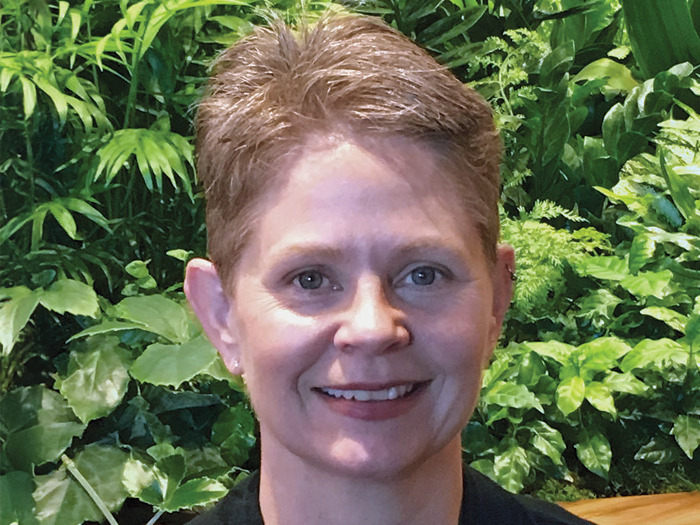2025 Theo Winner: Mavis Tire
 Mavis Tire faced a critical challenge that many growing companies encounter: How could the team effectively communicate workplace injury processes across a rapidly expanding network of locations?
Mavis Tire faced a critical challenge that many growing companies encounter: How could the team effectively communicate workplace injury processes across a rapidly expanding network of locations?
With approximately 1,500 locations and managers who had been doing things the same way for 15 years or more, the automotive service company struggled with inconsistent injury reporting, delayed medical care, and frustrated employees who didn’t understand their options after workplace injuries.
Workers’ compensation manager Ryan Banks recognized the company’s decentralized approach wasn’t working.
Employees often faced long waits in emergency rooms for injuries that could be treated elsewhere, while managers lacked clear guidance on how to support injured team members. The result was delayed care, preventable costs and erosion of trust between employees and management.
Tackling the Problem
Banks knew that transforming Mavis Tire’s workers’ compensation program would require more than just new procedures — it would demand a comprehensive change management strategy.
The company partnered with Medcor to implement a nurse triage program that provides injured employees with immediate access to trained medical professionals who assess injuries and recommend appropriate care levels.
However, the real challenge lay in getting buy-in from store managers who had decades-old established routines. Banks discovered that simply announcing the new process wasn’t enough.
“We recognized that putting the message out once, and assuming the message would be heard and understood and followed, wouldn’t be enough,” Banks said. “We knew we needed to reiterate it over and over and over.”
The persistence proved necessary given the ingrained habits across Mavis Tire’s operations.
Banks still receives daily notices of managers trying to use the old reporting system, even though it was discontinued more than two years ago. This persistence led him to embrace an important principle: repetition combined with relevance.
“We saw that, once it turned into a conversation around, ‘How can I help them make more money and keep their workers safe,’ it stopped being a conversation about this guy — me — coming from corporate and giving a directive and expecting them to follow it,” Banks explained.
Banks reframed the workers’ compensation program to show managers how timely injury reporting directly impacts their bottom line. When injured employees receive proper care quickly and return to work sooner, managers avoid paying overtime to cover staffing gaps, maintain productivity levels, and ultimately earn higher bonuses.
This approach transformed the conversation from corporate mandates to collaborative problem solving.
The nurse triage program Mavis implemented addresses multiple pain points simultaneously.
When employees call the triage line, medical professionals determine whether they need emergency care, urgent care or can manage their injury with self-care techniques. This eliminates unnecessary emergency room visits while ensuring serious injuries receive appropriate attention.
“We wanted to make sure that we were sending people to emergency rooms when they needed to go to an emergency room,” Banks said. “We didn’t want the first instinct to be, ‘I’m injured. I need to go to the emergency room and sit in a waiting room for an interminable amount of time.’ “
For employees who do need medical treatment, Mavis Tire ensures they receive faster service through pre-notification systems. The nurses send patient information to emergency rooms and urgent care facilities before employees arrive, completing much of the administrative work in advance.
“It puts them further up in the line,” Banks said. This seemingly small improvement can reduce wait times from four hours to 90 minutes or less.
The program also addresses the communication gaps that initially prompted the overhaul. Injured employees now have immediate access to medical expertise and clear guidance about their options, claim procedures and available resources. Mavis Tire follows up with employees the day after their injury to ensure they understand the workers’ compensation process and have access to all necessary support.
Success to Build On
The results of Mavis Tire’s comprehensive approach have exceeded expectations across multiple metrics.
Organization: Mavis Tires * Location: Fairview, N.Y. * Number of Employees: 8,000 * Category: Retail & Wholesale
Claims are reported faster, leading to more accurate documentation and reduced downtime. Injured employees receive appropriate care more quickly, improving both their satisfaction and health outcomes. Return-to-work rates have improved significantly, helping Mavis Tire maintain staffing levels and avoid lost productivity.
Perhaps most importantly, store managers now feel confident handling workplace injuries. They have a clear process to follow, access to professional medical support, and a better understanding of how proper injury management benefits both their teams and business performance.
The program’s scalability has proven crucial as Mavis Tire continues its rapid expansion. In 2019, the company operated approximately 130 stores. Today, across all brands including the recent Midas acquisition, Mavis Tire operates more than 2,300 locations. The centralized triage system adapts seamlessly to this growth, providing consistent support regardless of location.
Banks credits the partnership approach for the program’s success, noting that external expertise complements internal capabilities. “This is such a good resource that wasn’t available 10 years ago,” he said. “It offers our people a different side, a different resource than we might be able to provide.”
The nurse triage program serves as the “eyes and ears” that Banks and his limited team cannot provide across thousands of locations. Medical professionals can assess injuries immediately and provide guidance that goes beyond administrative support.
Employee feedback has been overwhelmingly positive, with workers appreciating the immediate access to medical expertise and clear communication about their options. The program demonstrates Mavis Tire’s commitment to employee welfare while achieving business objectives.
This success further illustrates how effective communication and employee-centered policies create mutual benefits for workers and employers. By addressing the root causes of confusion and delay, the company built a workers’ compensation program that scales with growth while maintaining personal attention to each injured employee.
“All they know is, ‘I’m hurt. How am I going to get through this? How do I get the right care?’ ” Banks said.
“Having a resource available to them immediately after an injury, that can talk to them about the specifics of what they’re experiencing, makes a huge difference, and it puts people at ease to hear, ‘Here’s what we can do. Here are our first steps to get you back to where you were.’ We are seeing them as people, that we look forward to having them back.” &
 The Theo Award celebrates its sophomore year, honoring 32 workers’ compensation programs for their excellence and service to workers across the nation. To learn more about the award and amazing qualities each winner possesses, visit here.
The Theo Award celebrates its sophomore year, honoring 32 workers’ compensation programs for their excellence and service to workers across the nation. To learn more about the award and amazing qualities each winner possesses, visit here.












